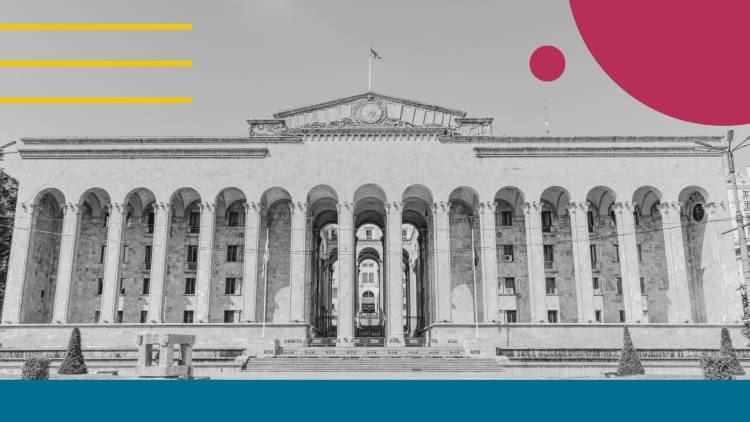
The case against the Government of Georgia was officially filed on 13 April 2023, by the Open Government Interagency Coordination Council. This filing was made in collaboration with several prominent civil society organisations. They had raised concerns about the government's decision to reintroduce the 'Foreign Agents Law'. According to the CSOs, this legislation posed a significant threat to fundamental democratic principles. The law was widely criticised for its potential to undermine civil society’s ability to operate freely and independently, leading to fears of a shrinking civic space in Georgia.
On May 6, 2024, the OGP’s Criteria and Standards Subcommittee (C&S) responded by issuing an urgent recommendation for the Government of Georgia to halt legislation restricting civil society’s operational freedom. They urged the government to outline a plan addressing the identified challenges by 6 June 2024, failure of which could lead to Georgia’s suspension from the Partnership. However, the Georgian Parliament proceeded with the Law on Transparency of Foreign Influence, passed on June 3, 2024, triggering further action by the OGP.
The Georgian government expressed commitment in a letter to address these concerns on 5 July 2024. However, the OGP concluded that the continued advancement of restrictive legislation makes it impossible to meet the 6 November 2024 deadlineAssessment of Stage One Actions: https://www.opengovpartnership.org/wp-content/uploads/2024/10/Georgia-S…; for implementing OGP’s Stage One recommendations, prompting it to move forward with Stage Two Actions. This includes the temporary suspension of Georgia from OGP until the issues are adequately addressed.
On October 14, 2024, the OGP Steering Committee officially suspended Georgia’s membership. This suspension follows multiple warnings that failure to address the restrictive legislative measures would result in such actions. The Steering Committee acknowledged Georgia’s engagement in OGP since 2011 but emphasised that the ongoing legislative environment poses serious challenges to the Partnership’s core values.
Georgia’s suspension from OGP represents a significant reputational setback for a country once recognised as a regional leader in open governance reforms. Georgia had previously co-chaired OGP (2017-2018) and was seen as a model for democratic transitions. This suspension may also strain Georgia’s international relations, particularly with Western governments and institutions such as the European Union (EU), which have voiced concerns about the country’s commitment to democratic values. The legislative developments could jeopardise Georgia’s aspirations for closer EU integration. The current legislative environment, including the restrictive Foreign Agents Law, could further complicate the operating environment for CSOs, making it more difficult for them to engage in advocacy, policy-making, and public accountability initiatives.
The Government of Georgia has until March 31, 2025, to submit a comprehensive work plan addressing OGP’s concerns. This plan must include:
- The withdrawal of current or proposed legislation that discriminates, stigmatises, or hinders the freedom of expression and association of civil society organisations, media representatives and vulnerable groups.
- Safeguard freedoms of expression and assembly, the space for civil society and their ability to operate without physical and verbal attacks, including in election periods.
This work plan must be submitted by March 31, 2025, with milestones for implementation by December 31, 2025, aligning with Georgia’s current OGP Action Plan cycle. By March 31, 2026, the Criteria and Standards (C&S) Subcommittee will assess the actions taken by the Government of Georgia to address the issues highlighted in the Response Policy concern:
- If C&S determines that the issues have been adequately addressed, it will recommend to the full Steering Committee that Georgia be placed back in active status, and the Response Policy case be closed.
If Georgia fails to adequately respond to the Stage Two Actions by December 31, 2025, suspension from OGP will become permanent, and Georgia will no longer be an OGP memberResolution of the OGP Steering Committee on the Georgia Response Policy Case (Stage Two): https://www.opengovpartnership.org/documents/resolution-of-the-ogp-stee….
This is a critical warning sign of the challenges facing democracy and civic space in the country. While the Georgian government has expressed its commitment to addressing these concerns, swift and substantive action is required to reverse the current trajectory. The suspension presents an opportunity for the Government of Georgia to reassess its legislative actions and reengage with the international community to restore its standing within OGP and the broader democratic framework.
